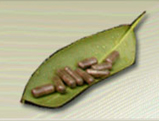 Loading... Please wait...
Loading... Please wait...Providing 25 Years Of Premium Service
Storewide Sale - Save 20%
Why Digestion Is Like a Campfire
Posted by Sara Bowes, L.Ac, MSOM on 11th Sep 2013
Digestion should not be taken for granted — really, it is the central pivot for all functioning in our body. Occupying the actual physical center of the organism, and being the interface between our own inner world and the external environment, as we bring the outside world into us in the form of food, the digestive system ought to be paid utmost attention and care. Nevertheless, modern Western culture has for the most part abandoned any traditions that promote optimally-functioning digestion. The repercussions are multifold. It is no shock that our culture is plagued by fatigue—why should we feel energized if the fire we use to burn our fuel has been essentially extinguished? Not to mention the fact that the fuel we now choose to burn is generally imitation and low-quality. When digestion is compromised, an endless array of disease can manifest—from chronic inflammation and associated presentations like arthritis, heart disease, and diabetes, to mental and emotional afflictions like depression, ADHD, and mental fogginess. Traditional cultures and healing systems, like Ayurveda, for instance, have long recognized the centrality of digestion in terms of overall health, and only recently is modern research beginning to catching up.
The simplest and most profound things we can do to help our digestive center generally involve gently stoking its inherent fire. In Ayurveda, this fire is called agni. So long as agni is strong and functioning well, both food, and also experiences, emotions, and sensory impressions will be processed and assimilated in a healthful fashion. If agni is weak, an excess of poorly processed substance and experience accumulates, resulting in a range of problems on the physical and also emotional and psychological levels. As much as we can contribute to the building of this fire, and at the same time, avoid practices that put it out, digestion will thrive. Just like a campfire, digestion generally likes to be warm and dry. Of course the warmth and dryness must be moderated to a degree so that the fire doesn’t turn rampant. A variety of factors, including constitution, dietary choices, and climate all will contribute to the terrain of the digestive tract. Depending on these factors, your own unique digestion will require more or less assistance in achieving optimal balance.
Simple practices to encourage our own internal fire should be emphasized by every person whose aim is to enhance the absorption of the food he puts into his body. First, ice water should be avoided at all times—most crucially at mealtimes. Cold does to our bodies what it does in nature, which is to freeze and slow. Pouring ice water into the stomach literally puts a halt to digestion, and is especially detrimental to a system whose preference already is to be comfortably warm. A small quantity of warm water or tea around mealtimes is preferable to cold beverages. Abstaining from drinking large amounts of liquid altogether, however, for 30-60 minutes prior to and after a meal will best benefit digestive function since the acids and enzymes excreted in the digestive process are simply diluted by the addition of liquid. Traditionally, in Indian and Chinese cultures, for instance, small servings of hot tea and/or soup with warming and aromatic spices like ginger and cardamom are eaten at the start of a meal to warm up the digestive tract and prime it for the rest of the meal.
The sun’s presence in our eating ritual is a simple practice to assure that the food we put into our bodies is given the best chance to digest. The biggest meal of the day should really be eaten at midday when the sun is highest in the sky—our bodies absorb and respond to the sun’s power and energy, and so will our digestive center, which particularly thrives in its glow.
Similarly, putting fire into our food, quite literally—through the process of cooking—further takes a load off of the body’s own internal reserves. Cooking food benefits digestion. The process itself can be thought of as a pre-digestive process. Raw food, though full of heat-sensitive enzymes, are for the most part, rough on digestion. It is difficult to assimilate foods in their raw state, and this is often reflected by the tendency to suffer from gas, bloating, loose stools with undigested food, and diarrhea on a raw food diet. Furthermore is the tendency to lose weight and strength (and vitality) when eating strictly this way. Clearly, raw foods can be helpful in particular situations with particular constitutional types, especially in for limited periods of time, for detoxification purposes, for instance. If such a diet is adopted, then it is all the more important to “supplement with fire” from other sources rather than cooking, such as hotter seasons and climates, midday eating focus, and warming herbs and spices.
Quite obvious but nonetheless overlooked is the mouth’s participation in the digestive process. Chewing thoroughly and mixing food with saliva is a necessary first step in breaking down food. Chewing clearly initiates the breakdown of food mechanically, and also introduces energetic warmth to the process by the nature of movement and friction, in the same way that rubbing two sticks together can start a fire. Just as important in this act is the thorough mixing of food with salivary enzymes, which are important for breaking down carbohydrates and fats especially, and for the rest of the digestive process to go according to plan, the optimization of the functioning of these enzymes is necessary. The stomach itself does not release these particular enzymes, nor does it have teeth, so it is crucial that the initial process of digestion in chewing and mixing is done well and thoroughly so that the stomach is not bombarded with a job it is not outfitted to perform. Traditionally, it is recommended that each bite is chewed thoroughly an average of 30 chews, until food is thoroughly liquefied, before swallowed. This will naturally slow down the process of eating, allowing the body’s satiety sensors to register the food being introduced to the system, preventing overeating, which is a natural detriment to digestive functioning as it becomes overwhelmed with the sheer volume of food.
Implementing these simple practices—and learning to recognize habits that are working against your digestion and putting out precious agni (eating in a hurry, chugging ice water before meals, ice cream, living off of raw foods in the winter in a cool climate) will surely over time become preferences as you begin to notice the correlations in digestive comfort and energy levels with the adoption of simple eating habits.















